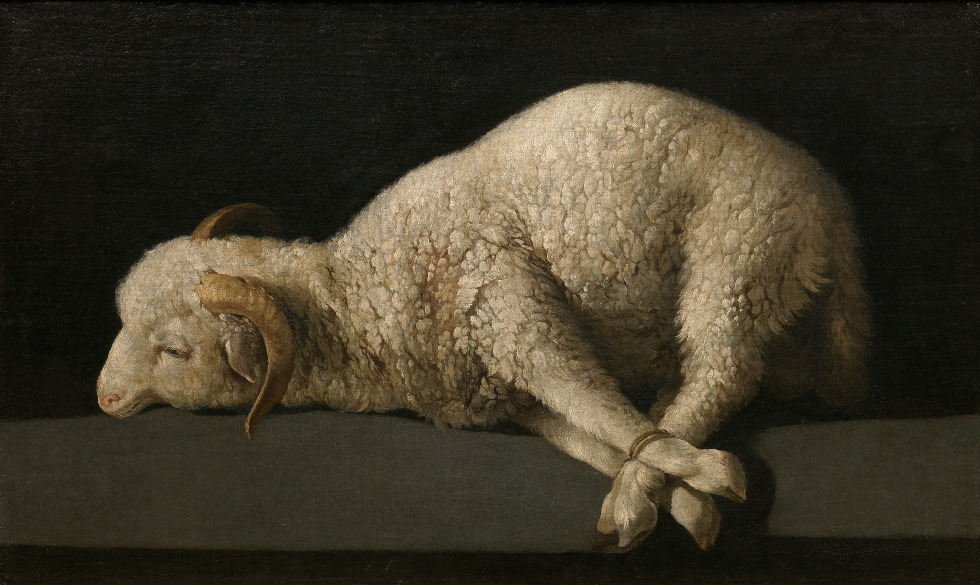In a coffee shop, the other day, I heard someone say, “What a tragedy 2020 has been!” The word tragedy comes from the ancient Greek word tragos, which means goat. Tragedy literally means “goat - work”. In ancient times what was the work of the goat?
It was to be the scapegoat sacrificed to keep the wrath of the gods at bay, in order to preserve some social stability. As groups or as individuals we are either working in the sacrificial, which uses violence to try and manufacture order, or in the sacramental, which uses grace to bestow peace. Job #1, for sin, is to deaden our consciousness to the use and effects of our sins. Sin fits us with custom moral blinders that allows us to self righteously engage in the injustice and violence of the sacrificial, all the while believing that we are working for the greater good. In the passion narrative, the High Priest, Caiaphas, says of Jesus, “that it is better for you that one man die for the people than that the whole nation perish (from societal disorder)." St. Paul broaches on this when he says in Ephesians 2:1 “And you He (Christ) made alive, who were dead in trespasses and sins.” “Jesus didn’t come to make bad people good, or good people better, He came to make dead people alive.” —Ravi Zacharias
How do we travel out of the sacrificial and into the sacramental? Jesus is our forerunner for this voyage. In Hebrews chapter 10, it talks about Jesus’ sacrifice being the sacrifice that ends all sacrifices. Jesus willingly allows himself the be processed by the unjust and violent sacrificial machine only to demonstrate its impotence by being resurrected. In Corinthians 15:14 St Paul says, “And if Christ be not risen, then is our preaching is in vain, and your faith is also in vain.” The sacrificial, then, does not have the “last word” that Word belongs to Him who is both Alpha and Omega.
At the liturgy of the Mass, where we celebrate the Lamb of God who takes away the sin of the world, the crucifix is a vivid reminder of the injustice and violence of the sacrificial. But as the liturgy proceeds, they are mysteriously transformed into the sacramental. 2 Corinthians 5:17 alludes to this, “Behold old things have passed away; behold, all things have become new.” In the Eucharist, we have the privilege of being literal participants in this Sacramental mystery.
Image credit: Agnus Dei c. 1635-1640, by Francisco de Zurbarán, Prado Museum





